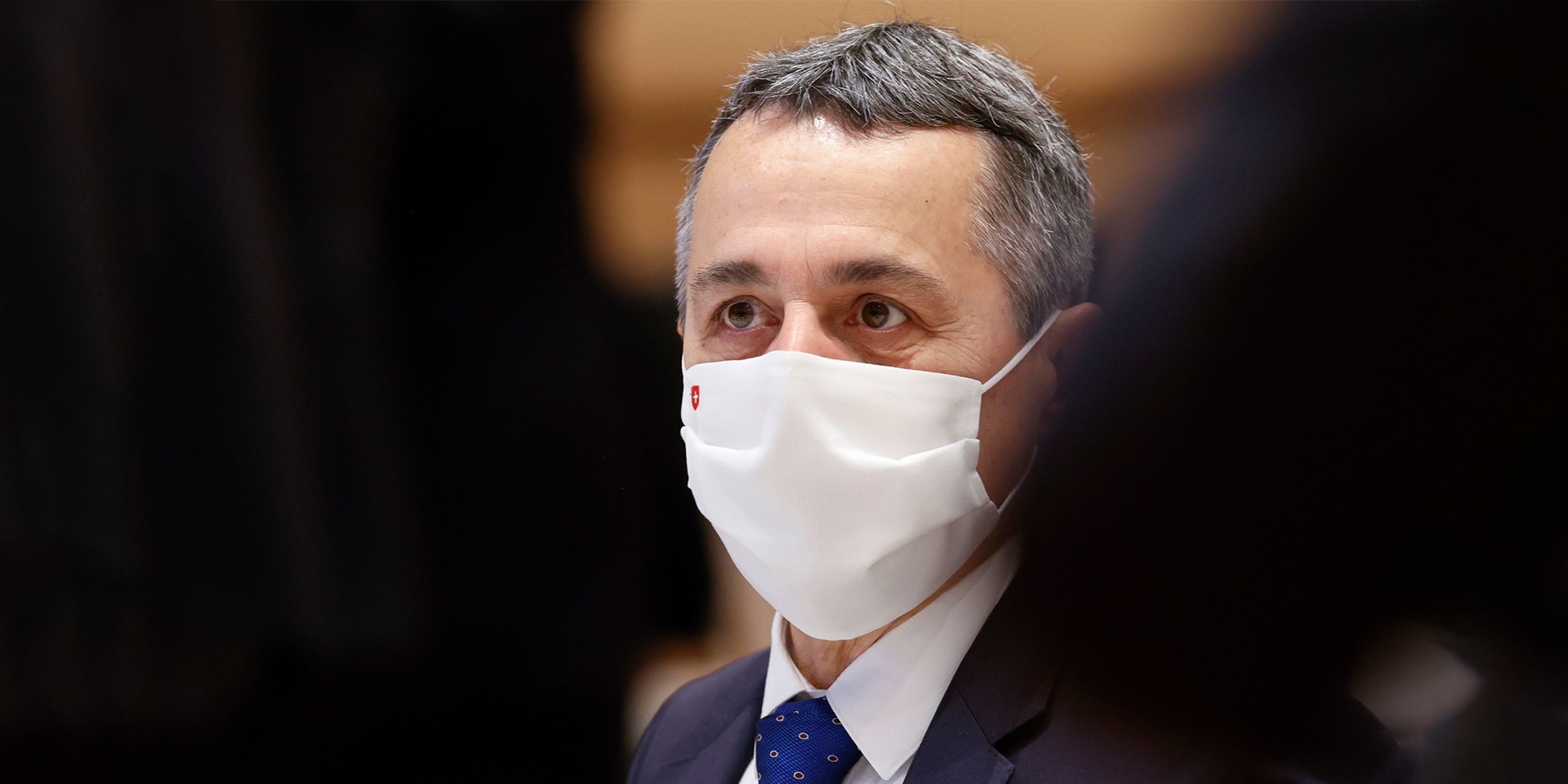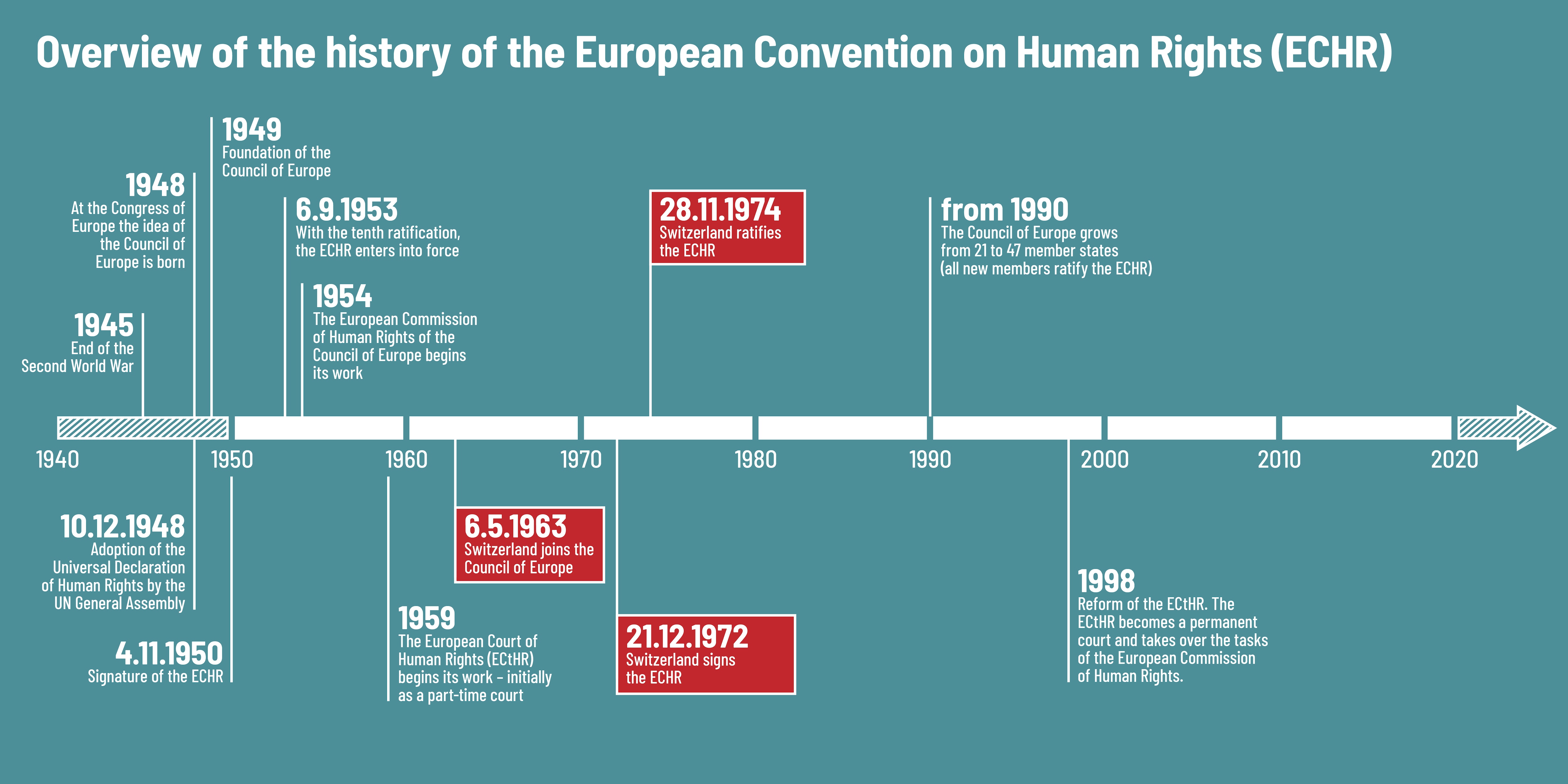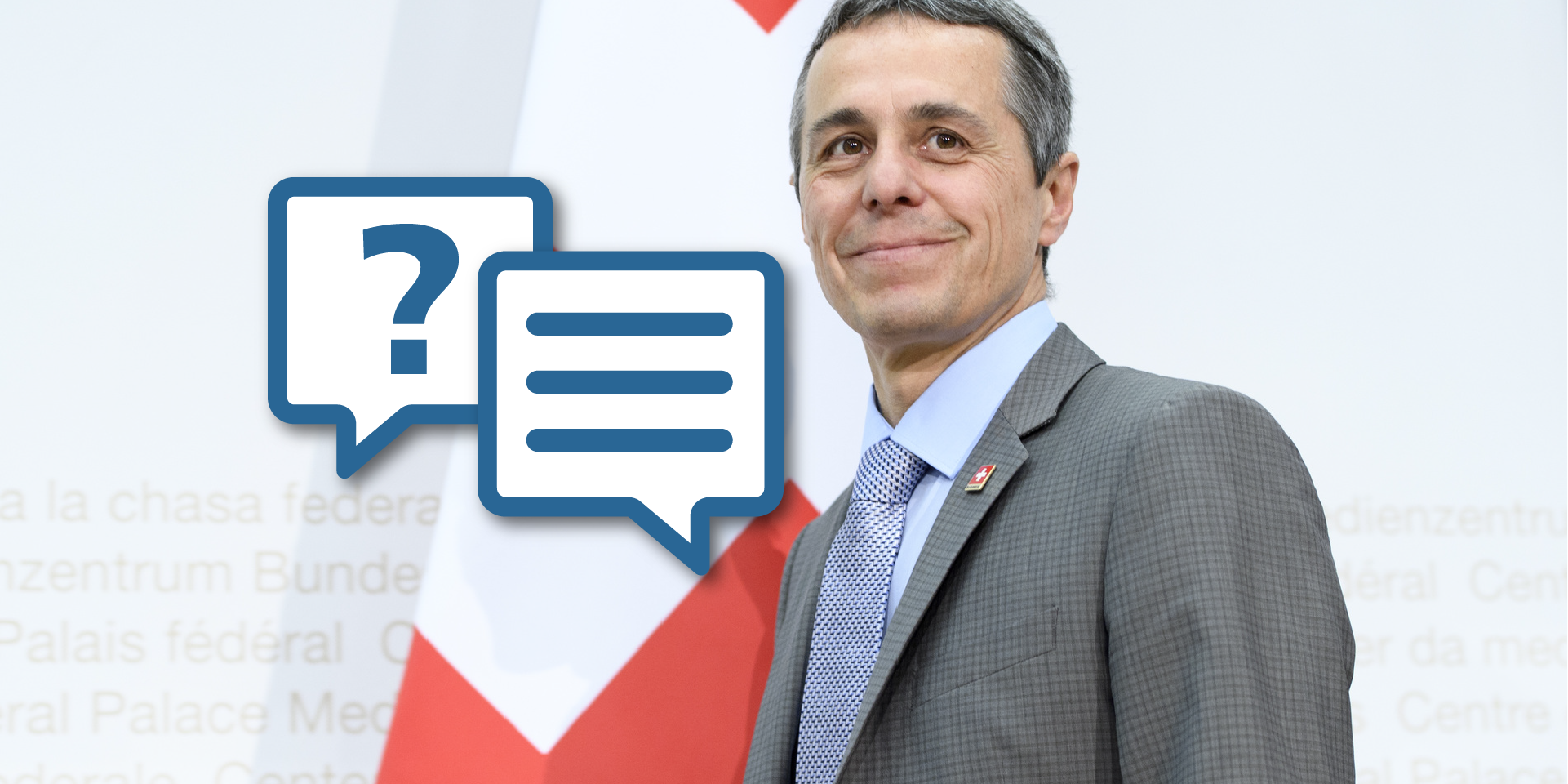Common problems require common solutions
In his opening address to the 46th Session of the UN Human Rights Council, Federal Councillor Ignazio Cassis stressed the importance of fundamental rights – in particular, human rights – and called on participants to commit to finding a common solution to the global challenges faced. The head of the Federal Department of Foreign Affairs (FDFA) went on to underline Switzerland's categorical opposition to the death penalty anywhere in the world.

Federal Councillor Ignazio Cassis delivers his virtual opening address to participants of the 46th session of the UN Human Rights Council. © Keystone
COVID-19 has turned everyday life on its head and the international community is faced with never-before-seen challenges. The pandemic has hit minorities and vulnerable population groups particularly hard, not only because of its direct impact on their health but also through its economic and social consequences. "We are seeing increasing inequality and discrimination in all regions of the world. The progress we made towards the 2030 Agenda risks being reversed. Making up for lost ground and making further progress towards the Sustainable Development Goals will require tremendous efforts," Cassis emphasised in his opening address to the 46th session of the UN Human Rights Council.
Knowledge transfer: access to information and a free press
The pandemic has also been a stark reminder of the importance of our individual freedoms. The restrictions put in place suddenly made many things we had long taken for granted no longer possible: getting together with friends, the freedom to move around and travel. "The pandemic has again shifted the focus to these fundamental freedoms. While we of course continue to fight for our individual freedoms, we must also safeguard the right to life, health and education," explained the head of the FDFA.
It is especially important to have access to reliable information if we as a society wish to tackle the challenges we currently face. Journalists must be able to carry out their work without fear of reprisals or threats to their lives. It must be possible to freely exchange ideas and solutions in order to develop sustainable measures. "Here I would also like to highlight the considerable efforts of the Office of the High Commissioner for Human Rights and the UN Special Rapporteur. While continuing to work to protect human rights in these challenging times, they have also provided valuable information to various countries to help them fight COVID-19," explained Cassis.
Future: inclusive multilateralism thanks to an active civil society
In his opening address to the 46th session of the UN Human Rights Council, Federal Councillor Ignazio Cassis also discussed the importance of the individual. "A common problem can only be solved over the long term if each and every one of us makes a contribution towards a common solution. The United Nations plays a key role in this regard. Switzerland very much welcomes the fact that the UN institutions have always been able to maintain their activities – even and especially during this global pandemic." The Human Rights Council in particular has demonstrated its resilience and ability to respond swiftly to the evolving situation by temporarily adapting its working methods. This flexibility is essential in today's volatile and complex global environment.
Yet the search for solutions to global challenges cannot be left to states and international organisations alone. Inclusive multilateralism means that civil society and the private sector must also be involved in the development and implementation of measures. "They are part of the solution and will help us achieve our long-term development goals," emphasised Cassis.
Death penalty: prevention and an independent judiciary more effective than the death penalty
The head of the FDFA not only addressed participants in opening the session of the Human Rights Council, but also in his role as a representative of those nations which initiated a resolution to abolish the death penalty – Belgium, Benin, Costa Rica, France, Mexico, the Republic of Moldova, Mongolia and Switzerland. "Our nations are categorically opposed to the death penalty anywhere in the world and under any circumstances," stressed Cassis.
Cassis explained that the discussions held among representatives of the UN member states underlined that the death penalty has no deterrent effect. "The death penalty is not an effective tool in the fight against crime, terrorism or violent extremism,” emphasised Cassis. The best deterrent remains prevention and an independent judiciary.



